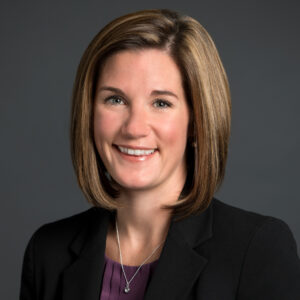The Legal Intelligencer
On July 14, the Commonwealth Court rendered a decision in Hunterstown Ruritan Club v. Straban Township Zoning Hearing Board, 2016 Pa. Commw. LEXIS 327 (Pa. Commw. Ct. 2016), confirming that a property owner’s failure to register a nonconforming use with a municipality and obtain a nonconforming use certificate is not fatal to the continuance of the use.
The law in Pennsylvania regulating legal, nonconforming uses is well settled. A nonconforming use is a use that predates a prohibitory zoning regulation; it constitutes a vested, constitutional property right that may be continued unless the use is a nuisance, abandoned, or extinguished by eminent domain, as in Hafner v. Zoning Hearing Board of Allen Township, 974 A.2d 1204, 1210 (Pa. Commw. Ct. 2009). For example, an existing legal auto body shop does not have to move upon the adoption of a zoning ordinance that prohibits the shop in its present location. Rather, the shop can continue to operate as a nonconforming use.
The burden of proving the existence of a nonconforming use falls upon the property owner. In order to establish a nonconforming use, a property owner must present objective evidence that the subject property was devoted to such use at the time the prohibitory zoning regulation was enacted, as in Appeal of Lester M. Prange, 647 A.2d 279, 281 (Pa. Commw. Ct. 1994). Finally, property owners with a legal, nonconforming use have a constitutionally protected right to expand the use, notwithstanding its status as nonconforming, as in Lench v. Zoning Board of Adjustment of the City of Pittsburgh, 852 A.2d 442, 444 (Pa. Commw. Ct. 2005). This right of natural expansion is not, however, unlimited. Pennsylvania courts have consistently concluded that while a property owner may increase the intensity of a nonconforming use (e.g., an increase in the number of users or an increase in the frequency of the use), a nonconforming use may not be expanded if it would be: inconsistent with the public interest; not an expansion of the current use, but rather an addition of a new use; or excessive, as in Domeisen v. Zoning Hearing Board, 814 A.2d 851, 856 (Pa. Commw. Ct. 2003).
In order to document legal nonconformities, many municipalities require property owners to register them pursuant to a procedure set forth in the municipality’s zoning ordinance. Upon registration, a municipality will typically issue a certificate of nonconformance acknowledging the existence of the nonconformity. Many zoning ordinances state that failure to comply with the registration procedure extinguishes the right to continue the use. However, such provisions are inconsistent with Pennsylvania case law. Most recently in Hunterstown the Commonwealth Court rejected a municipality’s attempt to partially extinguish a nonconforming use because the property owner’s nonconforming use certificate did not fully describe the extent or scope of the vested nonconformity.
In Hunterstown, the Hunterstown Ruritan Club in 1955 purchased 14 acres of property located in Straban Township for the purpose of providing the community with recreational opportunities. The property is partially surrounded by homes and at the time of purchase the township did not have a zoning ordinance. After purchasing the property, the club began to informally use the property for go-cart racing and in 1982 formalized the use by entering into a written lease with Hunterstown Kart Club. Ten years later, the township adopted its first zoning ordinance. Under the new zoning ordinance, go-cart racing was not a permitted use on the property. Nevertheless, the township verbally acknowledged the existence of the go-cart operation and agreed it could continue to operate as a nonconforming use. At that time, go-cart racing primarily took place on Saturdays, but races also were held occasionally on Sundays.
Over time, the club incrementally increased the intensity of the use of the property for go-cart racing and expanded its hours of operation. In 2011, due to this increased utilization, the township’s zoning officer issued a notice of violation to the club. In response, the club applied for a certificate of nonconformance, requesting the township’s formal recognition of the use of the property for racing on Saturdays and Sundays. The township issued the requested certificate, but limited the existing nonconforming use to Sunday racing. The township informed the club that in order to expand the use of the property to permit go-cart racing on Sundays, the club would need to seek special exception approval from the township zoning hearing board.
Disagreeing with the township’s exclusion of Sunday racing from the certificate of nonconformity, the club, pursuant to the township’s direction, sought special exception approval to expand the existing nonconforming use. To prove that Sunday go-cart racing predated the adoption of the zoning ordinance, the club produced a treasurer’s report from 1972 that showed racing took place on at least two Sundays that year. Additionally, the president of the kart club testified that: while Saturday racing was more popular in the 1990s, Sunday is now the more popular day; the ability to hold races on Sundays is essential to the continued existence of the kart club; approximately 250 people raced on the Sunday before the board hearing; alcohol is not permitted on the property; trash is picked up the day after every race; the kart club oversees parking of cars, trucks and trailers and patrons are directed to parking places; if patrons park on the street, they are asked to move their cars; and all audio speakers face the track. In opposition to the club’s request, two township residents who live adjacent to the property testified that Sunday racing did not begin to take place until after 2000.
The board was unpersuaded by the club’s evidence. While acknowledging that the club was a pre-existing nonconforming use, the board concluded that the club failed to satisfy the standards for a special exception and denied the application. The board found that: the proposed use did not meet applicable buffering or parking requirements; the proposed use will significantly devalue neighboring properties; the club did not establish planning with respect to environmental issues and the manner in which it would mitigate the increased noise, traffic, parking needs and pedestrian use of the property; the club did not provide fencing or screening; the club did not establish the number of parking spaces required or mark the parking spaces for standard vehicles and handicapped parking; and the club did not establish the adequacy of illumination of the property or its effects on adjacent properties.
The club appealed the board’s denial to the trial court, arguing that it was not proposing to change or expand the nonconforming use, but sought only to conduct the same racing that had occurred on the property for the past several years. In response, the board argued that the issue was not whether there was a prior nonconforming use for Sunday racing, but whether the club was able to meet the special exception requirements under the zoning ordinance to expand racing to include Sundays. Agreeing with the board, the trial court concluded that the club was not challenging the limitation of its nonconforming use certificate to Saturday only, but was seeking to expand the use to include Sundays, and dismissed the club’s appeal.
Before the Commonwealth Court, the club again argued that it never abandoned the nonconforming use of go-cart racing on Sundays and its nonconforming use includes racing on both Saturdays and Sundays. Agreeing with the club, the Commonwealth Court concluded that Sunday racing was entitled to constitutional protection and reversed. In doing so, the court found, among other things, that the board erred in concluding that the club was not entitled to continue its nonconforming use because the use was not adequately described in the township’s certificate of nonconformance. After summarizing applicable Pennsylvania case law related to nonconforming uses, the court explained that the granting or denial of a nonconforming use certificate, the purpose of which is merely to document the existence of a nonconforming use, has no bearing on an individual’s constitutionally protected property rights. Thus, the court reiterated that the issuance of a nonconforming use certificate does not grant a landowner any additional property rights, nor does the absence of a certificate deprive the landowner of the right to continue a lawful nonconforming use. Accordingly, the court found that the club’s failure to appeal the terms of its certificate of nonconformance resulted only in a procedural disadvantage and not in a restriction or limitation on its constitutionally protected property right to continue the use on Sundays.
The import of Hunterstown is that while a nonconforming use certificate is a useful tool for municipalities to document nonconforming uses and for property owners to defend against zoning enforcement actions, the absence of or an inaccuracy in a certificate does not negate the right of a property owner to continue a nonconforming use. Rather, it merely deprives a property owner of the most efficient method of proving the existence and scope of the use.
*Reprinted with permission from the 8/26/16 issue of The Legal Intelligencer. © 2016 ALM Media Properties, LLC. Further duplication without permission is prohibited. All rights reserved.

